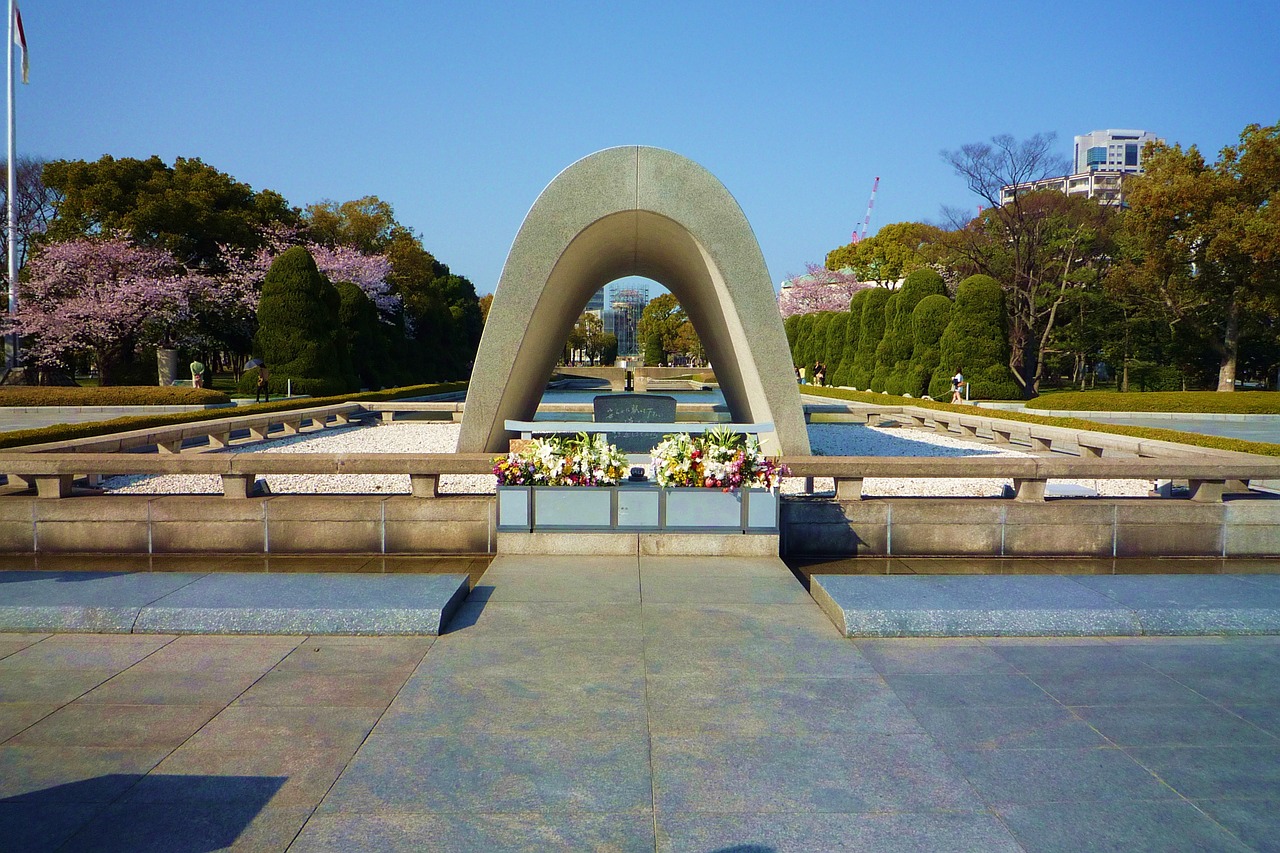

By Asmita - Aug 06, 2025
Hiroshima commemorates the 80th anniversary of the atomic bombing with a ceremony at Peace Memorial Park, drawing survivors and global delegates. Mayor Kazumi Matsui highlights the dangers of nuclear proliferation, urging world leaders to witness the impact firsthand. Aging hibakusha express concern over nuclear threats amidst global conflicts, emphasizing the need for disarmament and peace initiatives. The event renews calls for nuclear abolition and serves as a stark reminder of the horrors of nuclear warfare in today's world.

Monument Japan Hiroshima via Needpix com
LATEST
On August 6, 2025, Hiroshima marked the 80th anniversary of the atomic bombing that devastated the western Japanese city during World War II. On that day in 1945, the United States dropped an atomic bomb, known as "Little Boy," over Hiroshima, causing immediate deaths estimated at around 78,000 and many more dying later from injuries and radiation exposure. The city was chosen for its military significance and the surrounding mountains that U.S. strategists believed would amplify the bomb’s destructive impact. Three days later, a second atomic bomb was dropped on Nagasaki, leading Japan to surrender on August 15, ending World War II.
The commemoration ceremony at Hiroshima Peace Memorial Park drew thousands, including survivors, officials, and international delegates from over 120 countries. The event began precisely at 8:15 a.m., the exact time the bomb was dropped, with moments of silence, flower offerings, and water presented in memory of the victims. Hiroshima's mayor Kazumi Matsui emphasized the ongoing dangers of global militarism and nuclear weapon proliferation, warning that many world leaders view nuclear arsenals as essential for national defense despite the catastrophic humanitarian consequences witnessed in Hiroshima. The mayor urged political leaders worldwide to visit Hiroshima and witness the devastation caused by nuclear weapons firsthand.
Many of the aging survivors, known as hibakusha, participated in the event with mixed emotions. With their numbers rapidly declining and average age surpassing 86, they expressed concern over the resurgence of nuclear threats amid global military conflicts such as the war in Ukraine and tensions in the Middle East. Survivors stressed the importance of sharing their traumatic experiences to remind future generations of the horrors of nuclear warfare. Initiatives like the "Promise of Peace" involved schoolchildren offering messages of hope and a commitment to disarmament, highlighting the urgent need for dialogue to prevent future nuclear catastrophes.
The annual Hiroshima remembrance serves both as a solemn tribute to those lost and a global call for nuclear disarmament and peace. The iconic Genbaku Dome, one of the few structures to survive the blast, stands as a powerful symbol of resilience and a grim reminder of nuclear devastation. Leaders including Japan’s Prime Minister emphasized Japan’s commitment to advocating for a nuclear-free world, while international organizations and activist groups continue to press for the eradication of nuclear weapons. The event underscored the continuing relevance of Hiroshima’s lessons as the international community grapples with escalating weapon stockpiles and geopolitical tensions.